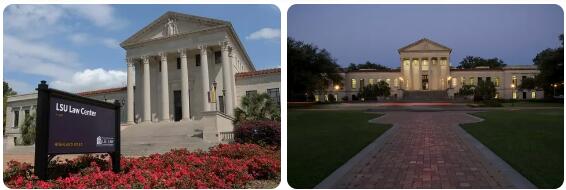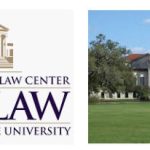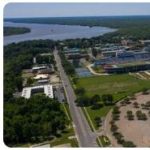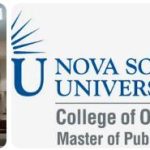The Paul M. Hebert Law Center at Louisiana State University–Baton Rouge was established in 1906. It was the first public law school in Louisiana and the only law school at a public institution in the state until 1949. The school was originally named the LSU Law School, and its first dean, Professor Paul M. Hebert, is credited with establishing the foundation for legal education in Louisiana. Hebert was also instrumental in introducing courses on civil law to the curriculum and training future generations of lawyers who would go on to serve their communities.
In 1949, LSU Law School became part of an independent college known as the LSU Law Center, which included a library and other facilities dedicated to legal education. The school continued to grow throughout the 20th century, adding new courses and degree programs as well as expanding its faculty and student body. In 1969, it became known as Paul M. Hebert Law Center in honor of its former dean and founder of modern legal education in Louisiana. Today, it is one of only two public law schools in Louisiana offering degrees from both common law and civil law traditions, making it an important hub for students seeking a comprehensive legal education that prepares them for practice anywhere in the world.
Louisiana State University–Baton Rouge Paul M. Hebert Law Center is located in the state of Louisiana. As one of the leading law programs, Louisiana State University–Baton Rouge Paul M. Hebert Law Center has a high average LSAT score of 155-159 when recruiting new students. As a return, the median starting salary for law graduates reaches $75,000 per year. See the following table for detailed admissions information and career profiles of Louisiana State University–Baton Rouge Paul M. Hebert Law Center.
Admissions: Louisiana State University–Baton Rouge (Hebert)
The Louisiana State University–Baton Rouge Paul M. Hebert Law Center has an impressive admissions rate of 78%, with a median LSAT score of 155 and a median GPA of 3.41. The school admits students from all backgrounds, with the majority coming from Louisiana, followed by Texas, Florida, Mississippi, and Alabama. The law center also provides several scholarship opportunities for students in need of financial assistance. The school offers more than $1 million in merit-based scholarships each year to incoming students and approximately $4 million in total aid to current students annually. Additionally, the school provides academic scholarships for those who demonstrate exceptional academic performance as well as need-based grants for those who are unable to meet their financial needs through other sources. Furthermore, the school also offers loan repayment assistance programs for graduates who are employed in public interest fields or government service jobs.
| Fall 2019 Admissions and Enrollment Statistics | |
|---|---|
| Total number of full- and part-time applicants | 1,408 |
| Total number of full- and part-time acceptances | 527 |
| Overall acceptance rate | 37.4% |
| Total number of full- and part-time first-year students enrolled | 233 |
| Number of full-time program applicants | 1,408 |
| Number of full-time program acceptances | 527 |
| Full-time acceptance rate | 37.4% |
| Number of first-year full-time students enrolled | 233 |
| Number of part-time program applicants | 0 |
| Number of part-time program acceptances | 0 |
| Part-time acceptance rate | N/A |
| Number of first-year part-time students enrolled | 0 |
| Fall 2019 GPA and LSAT Scores | |
| 25th-75th percentile GPA scores for all students | 3.22-3.66 |
| 25th-75th percentile LSAT scores for all students | 155-159 |
| 25th-75th percentile undergraduate GPA for full-time students | 3.22-3.66 |
| 25th-75th percentile LSAT scores for full-time students | 155-159 |
| 25th-75th percentile undergraduate GPA for part-time students | N/A |
| 25th-75th percentile LSAT scores for part-time students | N/A |
Careers: Louisiana State University–Baton Rouge (Hebert)
| Bar Statistics (Winter and Summer 2018 administrations) | |
|---|---|
| State where the greatest number of first-time test takers took the bar | LA |
| School’s bar passage rate for first-time test takers | 81.0% |
| Statewide bar passage rate for first-time test takers | 65.5% |
| Class of 2018 Graduates | |
| Total graduates | 188 |
| Graduates employed at graduation | 67.6% |
| Graduates known to be employed nine months after graduation | 96.1% |
| Starting Salaries of 2018 Graduates Employed Full-time | |
| 25th percentile private sector starting salary | $50,500 |
| Median private sector starting salary | $75,000 |
| 75th percentile private sector starting salary | $92,250 |
| Percent in the private sector who reported salary information | 100% |
| Median public service starting salary | $44,687 |
| Areas of Legal Practice (Class of 2018) | |
| Percent employed in academia | 2.0% |
| Percent employed in business and industry | 11.0% |
| Percent employed in government | 15.0% |
| Percent employed in all judicial clerkships | 18.0% |
| Percent employed in law firms | 51.0% |
| Percent employed in public interest | 2.0% |
| Percent employed in an unknown field | 1.0% |
| Percent employed in a judicial clerkship by an Article III federal judge | 2.0% |
| 2018 Graduates Employment Location | |
| Graduates employed in-state | 80% |
| Graduates employed in foreign countries | 0% |
| Number of states where graduates are employed | 13 |
| New England (CT, ME, MA, NH, RI, VT) | 0.6% |
| Middle Atlantic (NY, NJ, PA) | 1.2% |
| East North Central (IL, IN, MI, OH, WI) | 0.6% |
| West North Central (IA, KS, MN, MO, NE, ND, SD) | 0.0% |
| South Atlantic (DE, DC, FL, GA, MD, NC, SC, VA, WV) | 4.7% |
| East South Central (AL, KY, MS, TN) | 0.6% |
| West South Central (AR, LA, OK, TX) | 91.7% |
| Pacific (AK, CA, HI, OR, WA) | 0.6% |
| Mountain (AZ, CO, ID, MT, NV, NM, UT, WY) | 0.0% |
| Employment location unknown | 0.0% |
| Career Services | |
| (Data appear as originally submitted by this school) | |
| Career services operations | Career Services has 3 counselors and an interview coordinator. An On-campus Interview Program is offered each semester-law firms, gov’t employers, corporations and judges visit campus to interview students. Workshops, panel discussions, guest speaker presentations, counseling sessions, and alumni networking events are offered to students, covering a broad range of topics and job search strategies. |
| Job Type | |
| Bar admission required or anticipated (e.g., attorney and corporate counsel positions, law clerks, judicial clerks) | 82.0% |
| J.D. preferred, law degree enhances position (e.g., corporate contracts administrator, alternative dispute resolution specialist, government regulatory analyst, FBI special agent) | 7.0% |
| Professional/other (jobs that require professional skills or training but for which a J.D. is neither preferred nor particularly applicable; e.g., accountant, teacher, business manager, nurse) | 8.0% |
| Nonprofessional/other (job that does not require any professional skills or training or is taken on a temporary basis and not viewed as part of a career path) | 1.0% |









